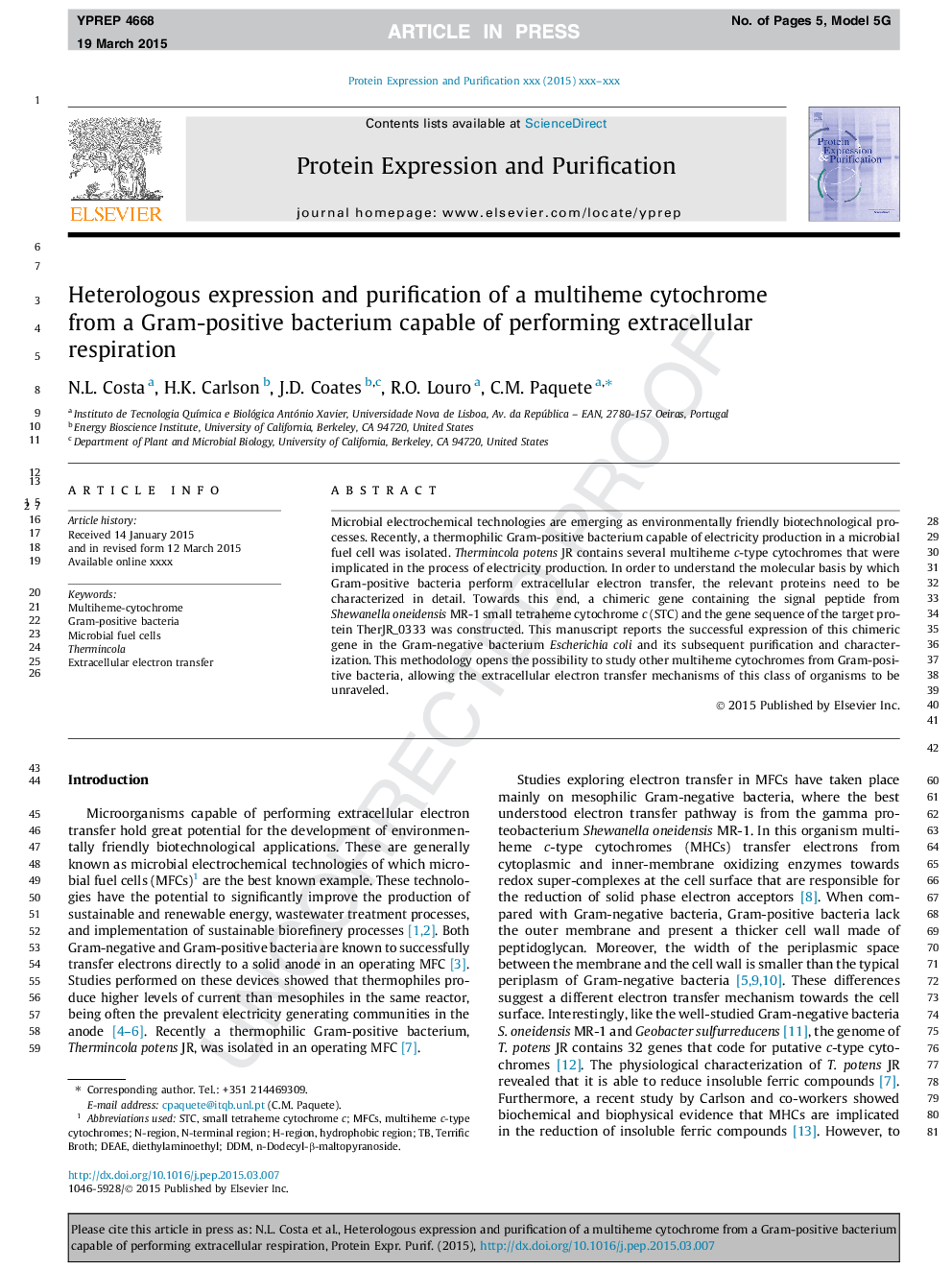| Article ID | Journal | Published Year | Pages | File Type |
|---|---|---|---|---|
| 8360198 | Protein Expression and Purification | 2015 | 5 Pages |
Abstract
Microbial electrochemical technologies are emerging as environmentally friendly biotechnological processes. Recently, a thermophilic Gram-positive bacterium capable of electricity production in a microbial fuel cell was isolated. Thermincola potens JR contains several multiheme c-type cytochromes that were implicated in the process of electricity production. In order to understand the molecular basis by which Gram-positive bacteria perform extracellular electron transfer, the relevant proteins need to be characterized in detail. Towards this end, a chimeric gene containing the signal peptide from Shewanella oneidensis MR-1 small tetraheme cytochrome c (STC) and the gene sequence of the target protein TherJR_0333 was constructed. This manuscript reports the successful expression of this chimeric gene in the Gram-negative bacterium Escherichia coli and its subsequent purification and characterization. This methodology opens the possibility to study other multiheme cytochromes from Gram-positive bacteria, allowing the extracellular electron transfer mechanisms of this class of organisms to be unraveled.
Related Topics
Life Sciences
Biochemistry, Genetics and Molecular Biology
Biochemistry
Authors
N.L. Costa, H.K. Carlson, J.D. Coates, R.O. Louro, C.M. Paquete,
